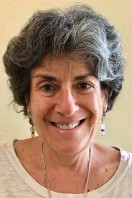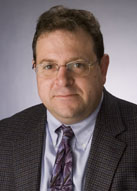By Robert Nassau, Associate Director, Office of Clinical Legal Education, and Director, Low Income Taxpayer Clinic; and Teaching Professor
CLINIC DIRECTOR’S REPORT

The precise origin of the phrase “may you live in interesting times” is unknown, and it’s also unclear if it is meant as a blessing or a curse. But whether a blessing or a curse, or a little bit of both, that phrase certainly has rung true for the student attorneys and directors of the College of Law’s eight clinics during the 2020-2021 academic year.
Below, we summarize some of the amazing work performed by our student attorneys and clinic directors during these interesting and challenging times. These summaries are just the tip of the iceberg for all that we have accomplished this past year.
And while the coronavirus pandemic has created significant obstacles, it also—as Associate Dean of Clinical and Experiential Education Deborah Kenn wrote in last year’s Clinic Director’s Report—provided teachable moments and learning opportunities that will better prepare our student attorneys for legal practice in a post-pandemic world.
Why am I writing this year’s report rather than Professor Kenn? It is because she has stepped down from her position as clinical program director due to a terminal illness diagnosis. Deb arrived at the College in the fall of 1989 when she started the Community Development Law Clinic. For the past 10 years, under her leadership as Associate Dean, the Office of Clinical Legal Education has added the Bankruptcy Clinic and the Betty and Michael D. Wohl Veterans Law Clinic, and the College dramatically expanded its experiential learning opportunities, consistent with new ABA and state requirements.

On top of her leadership of the College of Law’s clinical and experiential education, Deb has taught doctrinal courses in, among other things, Animal Law, Property, and Nonprofit Organizations Law, and she led three study abroad trips to South Africa.
All of her colleagues in the Office of Clinical Legal Education will miss Deb’s camaraderie, leadership, and dedication to our clients and our students. None more than me. And more importantly, the hundreds of students whom Deb has taught, guided, and mentored over the decades will remember her fondly and gratefully throughout their careers.
To paraphrase another unattributable proverb, but one that perfectly encapsulates Deb’s tenure at the Syracuse Law: “She left it better than she found it.”
Clinic Reports
Bankruptcy Clinic

Director: Adjunct Professor Lee E. Woodard
During 2020-2021, the Bankruptcy Clinic produced results for its clients despite challenges presented by the coronavirus pandemic. Various legal aid societies and numerous other sources continued to refer clients and bankruptcy courts continued to conduct hearings and process filings virtually.
Appearing in court or at meetings of creditors virtually presented its own challenges, such as having clients sign petitions and schedules and then getting the originals filed with the court. A combination of Zoom, FaceTime, phone, e-mail, and regular mail was used, and the clinic was able to file all its cases.\
With in-person instruction starting again in fall 2021, student attorneys are looking forward to interacting with clients directly, sitting down with them to go through their financial information world and helping them create a fresh start.
Betty and Michael D. Wohl Veterans Legal Clinic

Executive Director: Professor Elizabeth Kubala
Over the past year, the coronavirus pandemic has changed the practice of law, and student attorneys in the Betty and Michael D. Wohl Veterans Legal Clinic (VLC) have adapted and evolved to continue to best serve our community’s veterans.
While many courts closed or suspended operations, the US Department of Veterans Affairs continued processing disability claims, requiring students to find innovative ways to meet with clients and maintain good client relationships.
In fact, the significant shift to virtual proceedings meant increased opportunities for student attorneys to participate in hearings and appeals. And because classes were delivered virtually, the clinic was able to integrate JDinteractive students who benefited from experiential learning opportunities provided by the clinic.
Student attorneys performed a broad array of administrative and court appeals to challenge wrongful denials of federal veterans’ benefits, adapting seamlessly to the VA’s tele-hearing format and regularly appearing before the Board of Veterans Appeals.
Students also collaborated for their appearance before the US Court of Appeals for Veterans Claims on a still-pending, novel case involving a veteran suffering from military sexual trauma. Finally, two student attorneys worked as part of a national team to draft an amicus brief filed before the US Supreme Court that addressed issues involving veteran suicide rates, Gulf War Illness, and military sexual trauma.
Children’s Rights and Family Law Clinic

Director: Professor Suzette Meléndez
Despite the pandemic—and perhaps because of it—the Children’s Rights and Family Law Clinic (CRC) was hard at work this past academic year with students engaged in the active representation of their clients even while the courts had to severely reduce the matters heard.
CRC students were able to finalize an adoption for a family that had taken in a teenager after a very unstable and abusive childhood and was now adopting him as an adult after 18 years. The whole family showed up in the Zoom courtroom for the event.
The Clinic was able to process divorce matters in multiple counties. In one of our cases, we are resolving the divorce for a client experiencing debilitating PTSD, who was referred to us by the VLC. VLC Law Fellow Matthew Bulriss was a critical bridge in forming a successful attorney/client relationship.
The CRC also helped a young mother regain significant custodial rights and parenting time for her child after the mother successfully recovered from a drug addiction that led to a jail sentence. Additionally, the CRC engaged in representations that required significant research and detailed written analysis seeking legal options for our clients about how best to move their cases forward once courts resume normal activity.
Our clients retained us for the following matters:
- Joint tenancy issues and options for a partition action for an unmarried couple
- Bankruptcy issues related to marriage
- Issues of property division when workers’ compensation settlement proceeds were used to buy a marital home
- Inherited property and claim against the marital home purchased with said inheritance
Additionally, CRC students assisted clients in an expungement hearing arising from an erroneous determination after a child welfare inquiry; the preparation of annulment paperwork after a bigamous marriage was discovered, and the pursuit of an order of protection necessary to extract a woman and her children from a violent home. Students also participated in mediation training and observations in cases where alternative dispute resolution was offered.
Criminal Defense Clinic

Director: Professor Gary J. Pieples
The Criminal Defense Clinic (CDC) had several successes during the 2020-2021 academic year. Victoria Lezette L’21 and Michael Stoianoff L’21 represented a client charged with a series of minor, victimless charges, mostly resulting from her substance abuse and mental health issues. After Stoianoff developed a motion based upon statements from her family and social workers detailing her mental and physical condition, the court agreed to dismiss all charges.
In another case, James Thyden L’21 and rising 3L Katherine Davis convinced the judge and prosecutor to reduce the charges and reduce the protective order prohibiting their client from being in his family home. His mother wanted him home to help with the younger siblings while she cared for her ailing husband. As a result of the negotiated plea, no convictions were added to the client’s history, and he was able to move back home.
The CDC also successfully got a client’s case dismissed because of prosecutorial violations of updated New York discovery rules. A team of Donatello Lazarati L’21, Andrew Rahme L’21, and rising 3Ls Lilian Baah and Shannon Edwards researched, filed, and argued several motions arguing numerous discovery violations. On the eve of trial, the judge ruled that dismissal was warranted after multiple failures by the assistant district attorney to provide required discovery.
Disability Rights Clinic

Director: Professor Michael A. Schwartz
The following are five exemplary accomplishments of the Disability Rights Clinic (DRC) during the past year:
- DRC partnered with a Rochester, NY-based law firm to file a lawsuit against a franchisee of the Kentucky Fried Chicken chain in the United States District Court for the Western District of New York, alleging violations of Title III of the Americans with Disabilities Act and New York state anti-discrimination law. The case concerns a Deaf driver who was refused service at the franchise’s pick-up window because he could not use the ordering kiosk. Initial mediation is mandatory.
- DRC joined a local non-governmental organization in defending a lawsuit brought by a roofing company against the clinic’s client, an elderly Deaf man, in Small Claims Court. The clinic, in turn, filed a discrimination claim against the company with the New York State Division of Human Rights, which found probable cause to go to a public hearing.
- DRC continues to advocate for snow removal and maintenance of sidewalks for wheelchair users in a suburb of Syracuse.
- An Institutional Review Board approval was obtained for a study of educational policies and practices involving members of the Deaf New American community.
- The clinic continues to advocate for accessible access to healthcare facilities for people with disabilities, including immigrants with disabilities.
Elder and Health Law Clinic

Director: Professor Mary Helen McNeal
Despite the many challenges of COVID-19, the Elder and Health Law Clinic (EHLC) shifted quickly to virtual representation. Students executed wills, powers of attorney, health care proxies, and living wills; handled appeals of public benefit denials; assisted clients with minor probate issues; litigated a financial exploitation case; and represented family members seeking guardianship of parents with end-stage dementia.
As students learned the law, they simultaneously faced the challenges of virtual representation, including clients’ limited access to technology, limited ability to use technology, social isolation, and declining physical and mental health. While many people faced these challenges over the last year, they were exacerbated for many older people.
Student attorneys represented several patients residing in the long-term care unit at the Veterans’ Administration Hospital who were seeking end-of-life documents. One client’s situation exemplifies the challenges both clients and students faced. The client, who had advanced amyotrophic lateral sclerosis, wanted a will and power of attorney. He had neither access to—nor the ability to use—technology. With the assistance of a VA social worker, student attorneys Dianne Jahangani L’21 and Benjamin Kaufman L’21 met virtually with the client, whose health was deteriorating rapidly.
After several meetings, they drafted a will and arranged for a “virtual signing,” with final documents signed virtually, transmitted via email, and then virtually notarized pursuant to New York’s COVID-related executive orders. While Jahangani and Kaufman had intended to complete other legal tasks for the client, he unfortunately passed away within days of the will signing. As Jahangani and Kaufman wrote in their closing memo: “He was a wonderful client whom we had the pleasure of working with and ensuring that his final wishes were memorialized.”
In spring 2021, the EHLC participated in launching the “Enhancing Services for Older Victims of Abuse and Financial Exploitation” project, a collaboration among Vera House, the Center for Court Innovation, Christopher Communities, and Syracuse University. A major goal of the project is to offer restorative justice options as an alternative to litigation for those impacted by elder financial exploitation. EHLC and Elder Justice Fellow Allison Wick are integral parts of this project, providing legal information, training, referrals, and limited representation.
Low Income Taxpayer Clinic

Director: Professor Robert Nassau
In addition to its typical array of casework—such as helping clients obtain rightful refunds or fend off debilitating collection activity—student attorneys participated in the Low Income Taxpayer Clinic’s (LITC) first-ever Remote Tax Court Trial and increased their expertise in all three of our government’s pandemic-related stimulus payments.
The trial involved a taxpayer’s claim that she had signed an Extension of Time to Assess Tax under duress. Student Attorney Meredith Wallen L’21 examined the taxpayer at trial while rising 3Ls Justin Lange and Michael Towey assisted with a post-trial briefing.
Regarding the stimulus payments, LITC helped numerous taxpayers obtain payments, which—for reasons ranging from a failure to file a return to having been fraudulently claimed by another taxpayer—they had wrongfully been denied. The clinic anticipates a similar tax activity in the coming year in connection with the expanded Child Tax Credit.
Transactional Law Clinic

Director: Professor Jessica Murray
While continuing to work with clients who are starting and operating businesses and not-for-profit organizations during the unusual circumstances of a global health crisis, the Transactional Law Clinic (TLC) took advantage of online meeting technology to invite alumni to share experiences in their transactional law practices since graduating from Syracuse Law.
Alumni speakers included:
- Erin Chrzanowski L’19, Corporate Legal Counsel Americas for Dassault Systèmes, joined the class from Massachusetts to discuss her in-house practice, which includes work similar to that done by student attorneys.
- Haley DeCarlo L’18, an associate at, Block, Longo, LaMarca & Brzezinski PC in Syracuse, provided an overview of practicing residential real estate law in Central New York.
- Marysia Mullen L’13, an associate at Latham & Watkins, and Tyler Mullen L’13, Government Contracts Attorney, U.S. Defense Information Systems Agency, both joined the class from Washington, DC, discussing how TLC experiences impacted their careers.
- Austin Judkins L’18, an associate at Boylan Code in Rochester, NY, talked about the business and corporate finance practice of a medium-sized firm.
The visiting alumni also discussed life-work balance, career opportunities, changes resulting from COVID-19, and diversity initiatives at their workplaces. These online visits proved so popular that the clinic will continue them even after students return to the classroom, and some student attorneys have already expressed interest in returning to the clinic as future alumni guest speakers.
